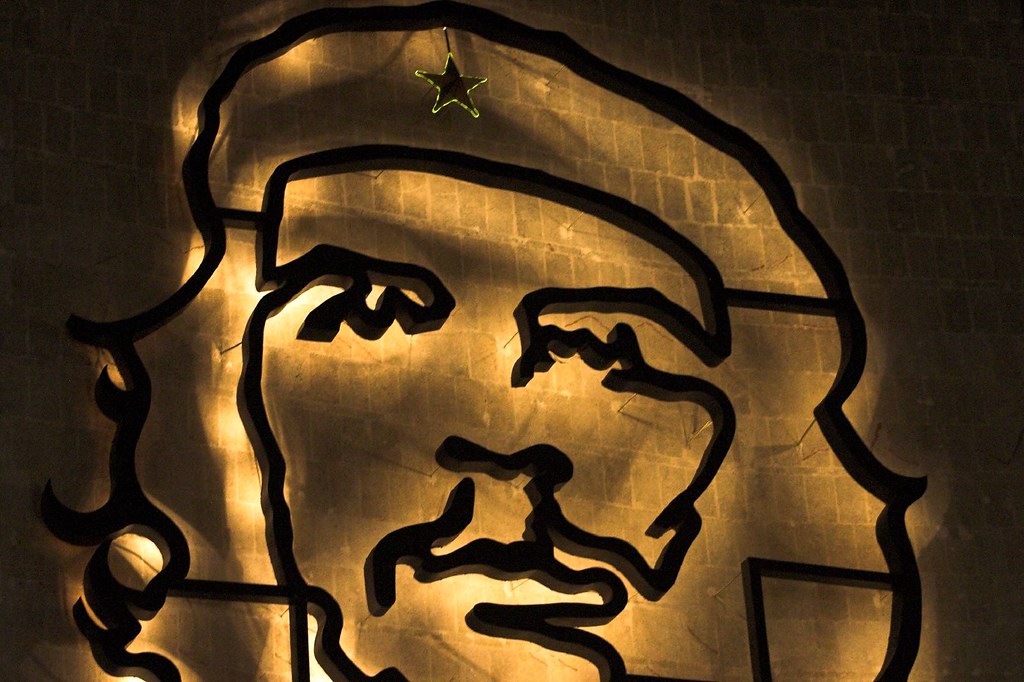“Everyone dies, but not every death has the same meaning.” (Ulrike Meinhof)
It is June. Thousands of students gather on the streets, venting their anger at the Iranian leadership which they consider to be corrupt and dictatorial. Suddenly, shots tear through the air. A young protester taking part in a political demonstration for the very first time, covered in blood, draws some last breath on an empty side road.

That protester is not Neda Agha-Soltan, but Benno Ohnesorg. And we are not talking about June 2009 on the streets of Teheran, but rather of June 1967 on the streets of then West Berlin. And well, the corrupt and dictatorial Iranian leadership is not (yet) to be confused with Mahmoud Ahmadinejad, it is still Persian with Mohammad Reza Shah Pahlavi ruling from the “Peacock Throne.”
The killing of Ohnesorg (and the dubious cover-up of German authorities and their involvement in the immediate aftermath) massively radicalizes the protest movement and culminates in the 1968 socialist revolutionary wave and the momentous founding of the Red Army Faction (RAF). Time has come to restate one’s assumptions about the revolution, as Germany enacts emergency laws which turn the turmoil into crisis.
“Protest is when I say this does not please me. Resistance is when I ensure what does not please me occurs no more.” (Ulrike Meinhof)
“They’ll kill us all. You know what kind of pigs we’re up against. This is the Auschwitz generation. You can’t argue with people who made Auschwitz. They have weapons and we haven’t. We must arm ourselves.” (Gudrun Ensslin)
Just four months after this first escalation, the icon of the revolution, Ernesto Che Guevara, is shot dead, too, some of his last words being a meaningful heritage: “I’m thinking about the immortality of the revolution.” But Che does not only provide the rhetoric in order to fight the powers that be. He also provides the tools of the trade: guerilla warfare, namely urban guerilla warfare as made popular by Carlos Marighella and – though in another context – Hans von Dach from now on is the weapon of choice to the RAF. Ulrike Meinhof will publish her own thoughts on the urban guerilla concept in 1971.
Marighella (who is, what else, shot dead by the police in 1969) defines the urban guerilla as a group of people acting underground and using unconventional (i. e. subversive) methods to liberate society from a regime that – in a Marxist-Leninist manner – is deemed the reactionary “class enemy” and “to distract, to wear down, to demoralize” the elements that foster it. “The urban guerrilla follows a political goal, and only attacks the government, the big businesses and the foreign imperialists.”
While, according to Meinhof, for the vast majority of leftist intellectuals “the embarrassment of being caught quoting Marx incorrectly is far worse than the hypocrisy of their own political activism,” the urban guerilla concept is “a revolutionary method of interventionism, carried out by all in all weak powers,”
It is obvious that legality (which is about power, Meinhof says), thus, cannot be the benchmark for the legitimacy of a revolutionary intervention which is asymmetrical by nature.
“The Urban Guerilla Concept should be seen as an armed struggle taking place in the light of police shoot-to-kill methods and the class justice that managed to free Kurras [who shot Benno Ohnesorg],” the RAF writes. Four decades later, journalists will find out that Benno Ohnesorg was not just killed by an ordinary German policeman, but that Karl-Heinz Kurras secretly worked as an agent for the infamous East German Ministry of State Security and that he has been a long-time member of the East German communist party.
Now isn’t it ironic, don’t you think?
P. S.: The Shah, in the end, was overthrown. For yet another coup d’état in Iran, see here.


4 replies on “Revolution Is More Than a Che Guevara T-Shirt”
followed!
Thank you for your comment. I am in no way saying that the RAF and the Stasi are two sides of the same medal. The points I tried to make are:
1. There are repeating patterns in history (e.g. the German Left’s ambiguous attitude towards Iran, see: http://www.spiegel.de/kultur/gesellschaft/0,1518,632499,00.html)
2. Ideology kills. Even if it is your own ideology.
errata: second sentence – […] at least NOT been followed […]
It would probably have struck the ‘APO’ hard, if they had known the real identity of Kurras. The reactionist movement might have even worn off or at least been followed by that many.
But what exactly is so ironic about this? Is it that today there is still murder in the name of some ideology, be it leftism, remain in power or religious hardlining? Or is it that the left fights itself? If the former is what you had in mind I find this very sarcastic. If you are amused by the latter, I cannot exactly follow your line of argument: Even if Che was shot by a leftish murderer, the difference between a person standing up to the case of a suppressed people (Benno) and the SED with its amost totalitarian style of government has to be outlined.
Nice research and interesting style of writing, too. But where exactly is you point?